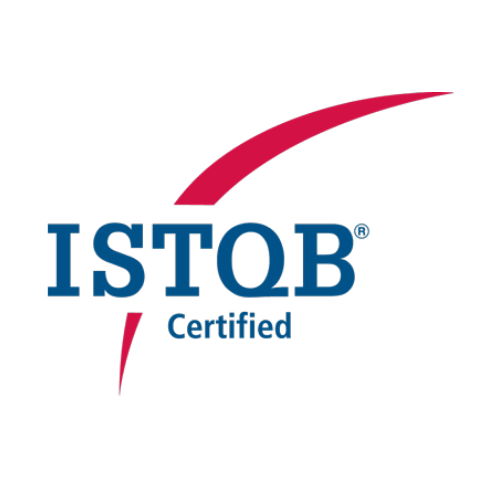The professional services industry is currently undergoing a huge digital transformation which has only been accelerated by the Covid-19 forcing businesses to implement new technology to improve efficiencies and meet the growing demand for online services.
Professional services firms will be adopting a range of emerging technologies over the next few years, read on to learn which technology trends are most relevant for accounting, legal, business and insurance service providers.
Top Technology Trends in Accounting
Accountants can expect several mundane processes to be improved with the implementation of various emerging technologies.
Blockchain
Blockchain, also referred to as distributed ledger technology provides a secure database to accurately record data for accounting and finance professionals.
Using blockchain, we can create smart contracts, verify people’s identities and credentials, transfer assets and much more., helping to improve visibility, transparency and trust within the financial sectors.
AI-Powered Productivity Improvements
Productivity can be improved massively with the help of AI algorithms that can complete time-consuming, repetitive tasks – freeing up time for accountants and finance professionals to work on more complex responsibilities.
On top of this, trusting AI to complete data analysis and processing can lead to a significant reduction in errors which helps to reduce costs, improve satisfaction and save on time spent correcting mistakes caused by human error.
Enhanced Computing Power
In today’s world, accounting and financial service professionals have access to more data financial than ever before, however, this data would have limited usefulness if we didn’t have the computing power to process and make sense of it.
The emergence of edge computing and quantum computing will allow insights to be drawn from data that would otherwise have been impossible to ascertain.
These technologies will be incredibly transformational for the industry and quantum computing, in particular, is expected to prove itself to be highly valuable in the financial world for its sophisticated problem-solving abilities.
Top Technology Trends in Legal Services
Technology is expected to become even more vital to legal professionals over the next four years, with Gartner predicting that legal technology spending within legal departments will increase threefold by 2025.
Virtual Law
Virtual law is a technology trend that we predict will become even more popular as a result of the rise in remote working scenarios.
A virtual law firm operates digitally and usually doesn’t have a physical office for clients to visit, instead of hosting meetings virtually on platforms like Zoom or Google Meet.
The physicality of these firms is the only difference between them and traditional law firms, they are still held to the same standards and regulations, however, they tend to be led by independent consultants instead of employees or partners like with traditional firms.
Clients of virtual law firms often benefit from reduced fees as overheads are lower for practitioners so lower rates can be charged.
Smart Contracts
Smart contracts are digital versions of contracts that complete transactions when the predetermined criteria are met.
Supported by Blockchain, smart contracts eliminate the need for human intervention in checking and reviewing operations. However, they require complete trust between the parties involved.
Legal Analytics
Legal firm operations can be analysed alongside big data to support the restructuring of processes, based on the changing market conditions and evolving client demands.
Legal analytics can benefit legal firms in the following ways:
- Firms can identify new clients and demonstrate expertise with instant insights into their case.
- Legal professionals can assess and approach cases using a client’s preferred strategy to improve customer experience.
- Legal professionals can support the claims they make with solid evidence and insights.
Top Technology Trends in Business
Cybersecurity Improvements
Cybercriminals and hackers are an ever-present threat for businesses, especially small-to-midsize businesses that don’t currently have the capital available to devote to highly sophisticated cybersecurity protocols and systems. Small business owners in particular will seek to strengthen their cybersecurity in cost-effective ways in 2023 and the years following.
International insurance group Hiscox reported that in the U.K., a small business is successfully hacked every 19 seconds. The same report states that on average, security breaches cost a small business £25,700 in ‘clear up costs’ each year.
It’s because of shocking statistics like this that a greater focus is being placed on improving cybersecurity measures to prevent malicious hacking, data breaches and other cybersecurity threats that aim to steal personal data.
Aside from the costs involved, businesses that fall victim to cybercriminals face severe reputational damage which can lead to the loss of clients and further difficulty attracting new ones.
Top Technology Trends in Insurance
The rise of Insurtech is helping to modernise the industry and develop new, more profitable business models and methods of operation.
Broadly speaking, insurtech refers to the use of technology to improve efficiencies and allow savings to be made on behalf of clients.
Robotic Process Automation
RPA in the insurance industry centres around the automation of mundane tasks such as completing transactions, claims processing and document verification.
Some see this as a negative due to the conception that automation directly results in the loss of human jobs, however, this is not the case. Existing employees can turn their attention towards more complex processes that cannot yet be automated and further jobs will be created for IT professionals with knowledge of data analytics and machine learning.
Experts suggest that robotics and cognitive automation will create the opportunity for humans and machines to collaborate by automating certain tasks and improving employee satisfaction by giving them more time to focus on more meaningful work.
Telematics Devices
Telematics remains a popular trend in vehicle insurance tech, it involves fitting a device into a vehicle’s on-board diagnostics port to measure various metrics such as speed, location and journey lengths.
Customers can be given a copy of this data and encouraged to improve their driving with a saving on their policy renewal.
Insurance companies can improve their service offerings and gain a better understanding of their customer’s vehicle usage and behaviour.
Predictive Analytics
Predictive analytics is mostly used to gain a better understanding of customer behaviour and ultimately to forecast their future behaviour.
In 2023, insurance companies will be using predictive analysis for these main reasons:
- Setting pricing structures
- Identifying customers at risk of having their policies cancelled
- Fraud risk assessment
- Anticipating future trends
Does your accounting, legal or insurance firm need a bespoke app or piece of software?
At Coderus, we have extensive experience developing high-quality solutions for clients in a range of industries. Get in touch with us today to find out how we can help with your next project.























